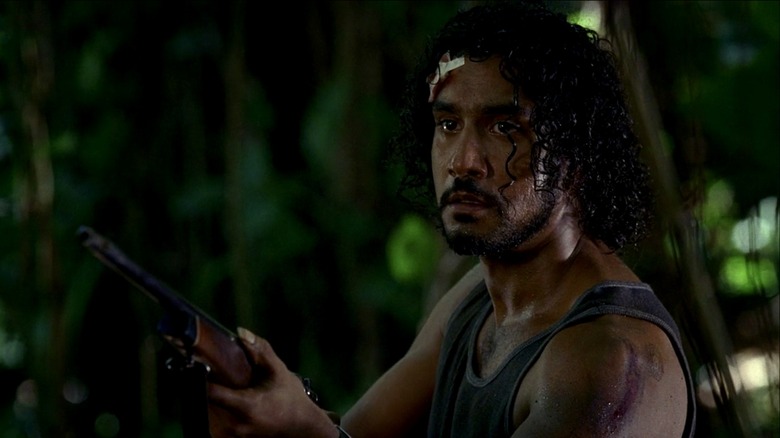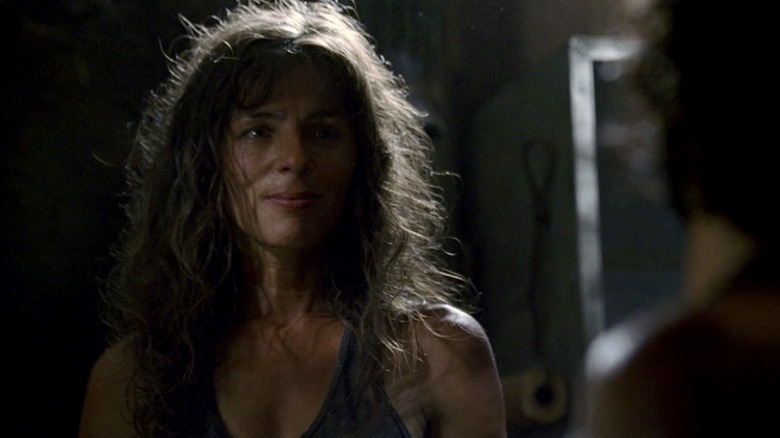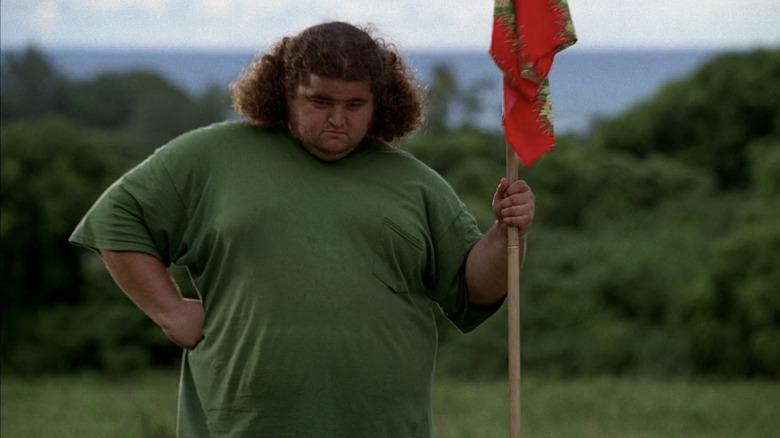Lost Was Never Supposed To Be Such A Confusing Show - So What Happened?
When ABC's "Lost" went off the air in 2010, it left a complicated legacy. The show faced an immediate backlash over its divisive ending, but in the years since then, it has undergone a more favorable reappraisal in some circles. Part of what made "Lost" so polarizing — and confusing at times — was its nature as an increasingly complex mystery-box show, one that had a way of revealing new mysteries within new boxes, even as it delivered answers to old ones that were unsatisfying for some viewers. The tease of possible answers sometimes left the audience more enamored of its own theorizing than the show's actual plot resolutions.
In an interview with Vox about the Sayid-centric episode, "Solitary," which was only the ninth episode in the first of six seasons of "Lost," co-showrunner Damon Lindelof explained that the show's storytelling approach was dictated early on by network concerns. He used the character of Rousseau, played by Mira Furlan, as an example of a mystery they sought to answer promptly. Rousseau was initially heard as a French voice on the radio before she was ever seen, but "Solitary" is where she first showed up in the flesh and had her identity revealed as she took Sayid (Naveen Andrews) captive. Lindelof said:
"What happened was that when the network got the outlines for 'Raised by Another' [Season 1, Episode 8], they started freaking out because the show had just premiered. Instead of saying, 'We've got a hit on our hands, you guys do whatever you want to do,' it was, 'We've got a hit on our hands, don't do anything to f*** it up.' They got really nervous."
'Here she is, mystery answered'
"Solitary" is also where the Others first appeared. Lindelof highlighted their introduction and the Rousseau reveal as one instance where a new mystery coincided with the answering of an old one. He said:
"Right on the heels of 'Raised by Another' was another mythological episode where we were really leaning into this idea of the Others for the first time. Where Rousseau was talking about how these other people on the Island had abducted her, her daughter, her child. But it was also the first answer, the first mystery that we were answering here in Episode 8, which was, 'Who is this French voice in this broadcast that we hear at the end of the pilot?' We're going to introduce you to her. She's going to become a character on the show. Here she is, mystery answered."
"Lost" had a way of extending beyond its previously defined borders, again and again. For example, after the Others came the Tailies and the Freighter people. The show was constantly redefining itself and its character dynamics. There were flashbacks, then flash forwards, then flashes sideways, with conflicts playing out between Jack and Locke, Benjamin Linus and Charles Widmore, Jacob and the Man in Black, and on and on.
According to Lindelof, however, the network itself wanted to delay some reveals in favor of keeping the show a more "closed environment," without a bunch of other new characters (i.e. Nikki and Paulo) coming out of the woodwork every week like on "Gilligan's Island."
'We as writers were really wanting to answer mysteries'
Lindelof continued:
"Contrary to popular belief, we as writers were really wanting to answer mysteries as we went. It was like, if we're going to ask a new question, we have to answer some old ones, or else these things are just going to pile up, and the whole endeavor is going to collapse. All we're going to have is questions. We're not going to have any answers. And I remember the network's response being like, 'It's cool. This Rousseau idea is cool but don't do it in Episode 8. Do it in the finale. Don't bring this character out. We really want to keep it a closed environment. We don't want to do Gilligan's Island where every week like, 'Oh, here are the Russian cosmonauts, and here are the Harlem Globetrotters. And here's the Broadway show producers.'"
"Lost" was a plot-heavy show, but in the end, Lindelof and the other writers were arguably more concerned with its characters and their individual arcs than the greater overarching island mythology, with its frozen donkey wheels and other zany plot shenanigans. At the same time, it still was a mythology-driven show for its audience, so much so that you had to keep following along with it every week or else you might be, well, lost, as a viewer.
The show was ahead of its time in telling this kind of serialized story on network television, in a manner that has now become de rigueur on cable and premium channels and streaming services. Yet airing on ABC before the streaming age brought with it the added pressures of a network format, which delayed the gratification of certain reveals and occasionally helped steer the "Lost" narrative in confusing directions.


